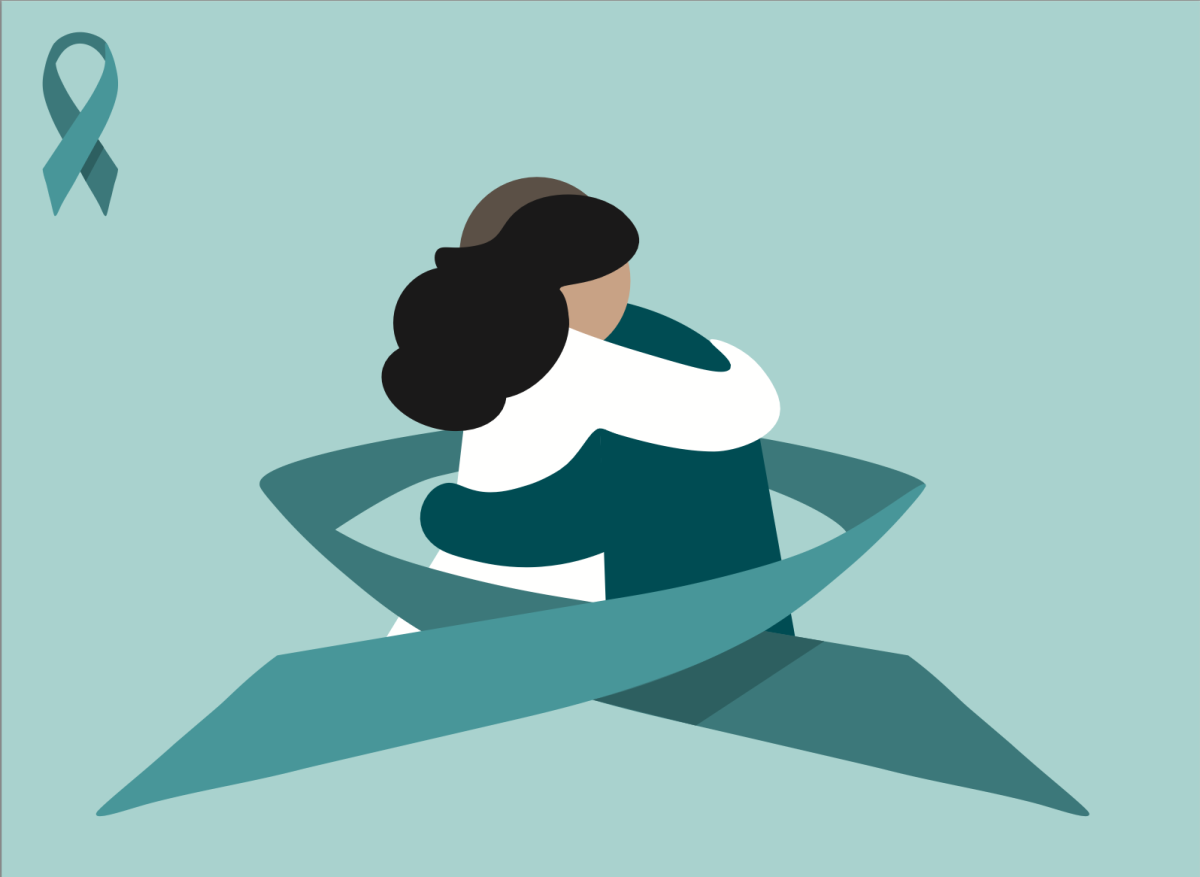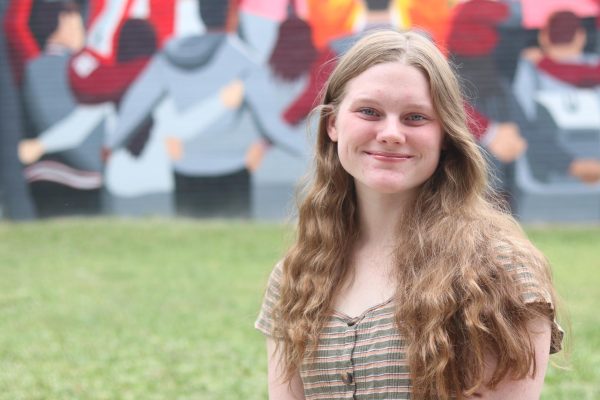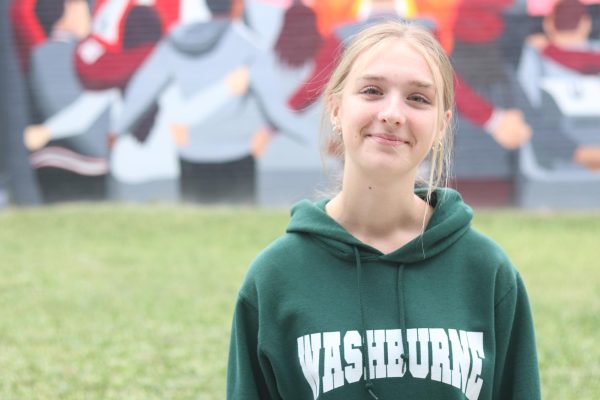No one expects to find out someone they know has cancer, especially a parent. But when senior Adelaide Sivits’ mother Eden Sivits came home her freshman year with stage three ovarian cancer, her life turned upside down.
“It’s kind of like baptism by fire,” Sivits said. “I felt like my body was just carrying my head from room to room. It felt so impersonal and clinical in a way that it just felt impossible to be real and to accept it.”
September is ovarian cancer awareness month. Known as the silent killer, this form of cancer is often undetectable with symptoms including bloating, gas or pelvic pain. Women often have no symptoms before being diagnosed.
“We hear a lot about those most common cancers,” Sivits said. “I think it’s so important to raise awareness for the ones that are A: harder to detect and B: more common than you think. Getting screened is really important, talking to family members and finding out if you have a history of certain types of cancer so you can be on the watch, talk with your doctors.”
After witnessing the experience secondhand, Sivits’ friend Lillian Spinelli emphasizes the importance of awareness.
“Half our population [are] women,” Spinelli said. “Just like breast cancer, it is very common in women and I think talking about it more really makes us more educated.”
When thinking about cancers that affect women, breast cancer is the first to come to mind, but ovarian remains one of the top cancers affecting people assigned female at birth today. The two diseases are also connected. Mutations in the BRCA gene have been linked to a 50% risk increase of contracting breast cancer and 30% in ovarian cancer.
This puts a new level of risk that comes with an ovarian cancer diagnosis. Oftentimes, women have to treat themselves for both diseases as a preventative measure, which can prolong the process.
“She had a total hysterectomy and then she’s going to have a double mastectomy,” Sivits said. “So it makes me sad because I know that she’s really anxious about it and upset.”
While the physical parts of the disease are limited to the patient, the physiological effects transpire to their loved ones.
“I think we kind of immortalize our parents in our own minds,” Sivits said. “We make them these gigantic figures. They’re kind of untouchable to us. So seeing them suddenly so not good is so astonishing and turbulent.”
Family illness can affect students’ mental health in and out of school.
“It’s really hard to concentrate,” social worker Carissa Welsh said. “It’s really hard to think about education when you maybe have something else going on outside of school, especially something to the severity of a parent or a family member with cancer.”
The LHS social services department is aware and prepared to support anyone struggling.
“There is help available,” social worker Lynisha Thomas said. “Accepting help can be very, very difficult, and we respect that and we don’t want to cross boundaries or anything. But also knowing it is okay to ask for help… please just ask because there might be something that you haven’t even thought of that we can offer.”
Just like any other difficult time, it is important to rely on friends and family.
“Lean on your positive people,” Welsh said. “Surround yourself with people that bring you joy, but also you know that it’s going to be a judgment-free zone.”
Sivits can attest that having a good support system is crucial.
“I’m very much indebted to those around me for the grace that they’ve provided for me,” Sivits said.
Although having a sick parent is a very isolating experience, Spenelli thinks it made her relationship with Sivits closer.
“I think her sharing that with me, just knowing that we were both each other’s people, that bond made [us] closer,” Spenelli said.
There are many ways to support a friend during this time, and Spenelli tried to be there as much as possible.
“I think really just being there and spending as much time as you can with them,” she said. “Obviously not forgetting the big event that’s happening, but I think like alleviating fears…really helps with that and planning events with them, or seeing if you could help at all in any way with their family.”
Not everyone is lucky enough to see their parents live through a deadly disease like cancer, but there was a happy ending to Sivits story.
“Slowly color kind of came back to her face and lightened her eyes and all of that kind of stereotypical stuff I found out was kind of true,” Sivits said. “She gained back a lot of weight and looks more like my mom.”
Nearly 20 million people have been diagnosed with ovarian cancer. If you notice any symptoms, it’s always worth investigating.
“You always know your body better than a machine does,” Sivits said. “So advocate for yourself. There is light at the end of the tunnel. I know it sounds so silly, but reaching out and allowing yourself to be helped through the tunnel is always worth it.”





